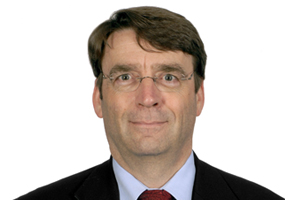UOIT students actively involved in World Bank’s Sustainable Cities blog
June 17, 2013

A dozen students from the University of Ontario Institute of Technology (UOIT) are weighing in this summer on the topic of climate change, in front of a global audience.
The UOIT students from the Faculty of Engineering and Applied Science and the Faculty of Energy Systems and Nuclear Science are contributing to a blog on the World Bank's Sustainable Cities website. Some of the UOIT student blogs already have more than 10,000 reads.
"This is a great way for UOIT students to share and apply their knowledge on the international stage," said Daniel Hoornweg, Boyce Research Chair in Natural Gas as an Alternative Transportation Fuel, UOIT. "UOIT was the first university in the world taking part in this blog and the feedback from all corners about the initiative has been overwhelmingly positive."
Hoornweg, former Lead Urban Specialist, Cities and Climate Change with the World Bank, is still a Fellow in the organization's Sustainable Development Network and blogs for the World Bank on a regular basis. The blogs were structured in as part of the fourth-year Emerging Energy Systems course Hoornweg teaches, as a follow up to students' research projects and class presentations. A total of 12 or 13 blogs will be posted throughout the summer.
While the main purpose of any blog is to raise awareness and encourage discussion about particular topics, Hoornweg said that in the process of writing these blogs, his students were able gain a worldwide perspective on what they learn in their courses and how they can apply that knowledge.
For example, in the blog post Make a Wish: Climate Change or Energy Poverty, Mats Van Kleef explored the ethical dilemma and technical challenge of addressing two seemingly contradictory issues: how to reduce greenhouse gas emissions caused by energy consumption, while at the same time coming up with solutions to improve access to modern energy services in some of the poorest areas on earth.
"The world is big, but it's getting really small really fast, especially in the whole energy area," Hoornweg said. "We are all in this together so we need good energy leaders who understand what is happening, not only in Ontario, but also in the rest of the world."
Another important lesson for students was that not all energy information sources are equal. As part of the course, students were required to sign up for Twitter and follow individuals and organizations that are tweeting about energy issues.
"You almost have a hierarchy of information quality, and it becomes quite important for you to understand where the public is getting their information and of what quality those sources of information are," he said.
The right information and the right kind of preparation will be paramount for this group of graduating students. "They will see the world's urban population double in their careers," Hoornweg said. "This certainly isn't your father's or grandfather's world anymore. We're adding the equivalent of one Toronto to the world every couple of weeks, and these students are going to have to figure out how to deal with that."
The biggest contribution students can make to the climate change discussion is their positive outlook, Hoornweg noted. "Youthful optimism makes politicians, aged engineers and public policy people try a bit harder." For this reason, Hoornweg said he hopes he can make these blogs a permanent part of the course. Other ideas include setting up a Sustainability 101 blog on UOIT's Faculty of Energy Systems and Nuclear Science website, and forging stronger ties with the Engineers Without Borders chapter on campus.



